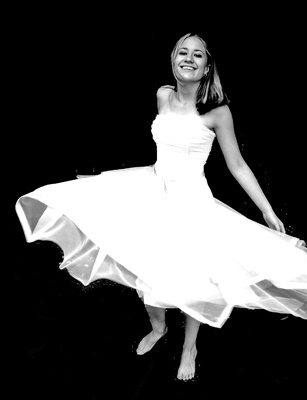All Nonfiction
- Bullying
- Books
- Academic
- Author Interviews
- Celebrity interviews
- College Articles
- College Essays
- Educator of the Year
- Heroes
- Interviews
- Memoir
- Personal Experience
- Sports
- Travel & Culture
All Opinions
- Bullying
- Current Events / Politics
- Discrimination
- Drugs / Alcohol / Smoking
- Entertainment / Celebrities
- Environment
- Love / Relationships
- Movies / Music / TV
- Pop Culture / Trends
- School / College
- Social Issues / Civics
- Spirituality / Religion
- Sports / Hobbies
All Hot Topics
- Bullying
- Community Service
- Environment
- Health
- Letters to the Editor
- Pride & Prejudice
- What Matters
- Back
Summer Guide
- Program Links
- Program Reviews
- Back
College Guide
- College Links
- College Reviews
- College Essays
- College Articles
- Back
Ode to an Unnamed Love
I saw you on the street today,
The single wings of my fluttering heart reached for yours,
But when I did you walked away,
The one sole thing my aching heart still adores.
I have seen you before-
In a different place,
A different body
With a different face-
Your lascivious anonymity caressed me forward,
My lap your throne,
Your queen-dom unexplored.
In this moment, I to the street am like a drop of water
That in the ocean seeks another drop1-- you.
Despite the ebb and flow and delicious swelling2 of the waves, groping the shore,
Copulating ecstatic and insatiate3 sand, rocking back and forth,
Our tears of water have met, infallibly, loved.
I do not care if Venus swears for variety4,
But that you get what women want: pow’r and sovereignty5.
My love for you will alter not if it finds alteration6,
But straightly keeps its altar—your love is my vocation.
And if I find myself in Sinbad’s7 low position,
I shall never leave you, consider it my mission.
If beauty is truth, and truth is beauty8, well surely you have both,
For Una9 do your looks conceive,
And Aphrodite10 oath.
While outwardly you shine like Narcissus’ reflection11,
Your inner soul is full of generous Charity12.
And while your beauty fades into a gray complexion,
What having been must ever be13,
And I’ll still see perfection.
“But soft, you walk away, do turn around and say you love me so.”
I turned and walked away,
I didn’t catch her name,
But oh, I loved her so.

Similar Articles
JOIN THE DISCUSSION
This article has 0 comments.

2. Walt Whitman’s famous and provocative lines from his poem “I Sing the Body Eclectic:” “Ebb stung by the flow, and flow stung by the ebb—love-flesh swelling and deliciously aching”
3. Allen Ginsberg’s beat poem “Howl,” exclaiming furious sex, “Who copulated ecstatic and insatiate”
4. In his poem “The Indifferent,” John Donne writes, “I can love her, and her, and you, and you…Venus heard me sigh this song/ And by love’s sweetest part, variety, she swore”
5.Echoes Geoffrey Chaucer’s “Canterbury Tales,” where in the Wife of Bath’s story a knight must learn the secret of what women want in order to be acquitted for rape. He meets a fairy who teaches him the secret, that women desire “sovereynetee/ As wel over hir housbond as hir love/ And for to been in maistrie hym above.”
6. In Sonnet 116, Shakespeare writes, “Love is not love/ Which alters when it alteration finds”
7. In the “Fourth Voyage of Sinbad the Sailor” from “Arabian Nights,” Sinbad is buried alive with his dead wife, as is custom in the savage land in which he travels. He becomes a hero by escaping, following a small light.
8. In John Keats’ famous poem “Ode to a Grecian Urn,” he writes, “Beauty is truth, truth beauty”
9. In Edmund Spenser’s “The Faerie Queene,” Una is a beautiful princess that represents truth.
10. Aphrodite is the Greek goddess of beauty.
11. Narcissus, in Greek mythology, fell in love with his own reflection, and, not wanting to leave its sight, died.
12. Charity, here personified, stands for loving, kindness, and giving.
13. William Wordsworth writes in his famous “Ode: Intimations on Immortality,” “In primal sympathy/ Which having been must ever be”